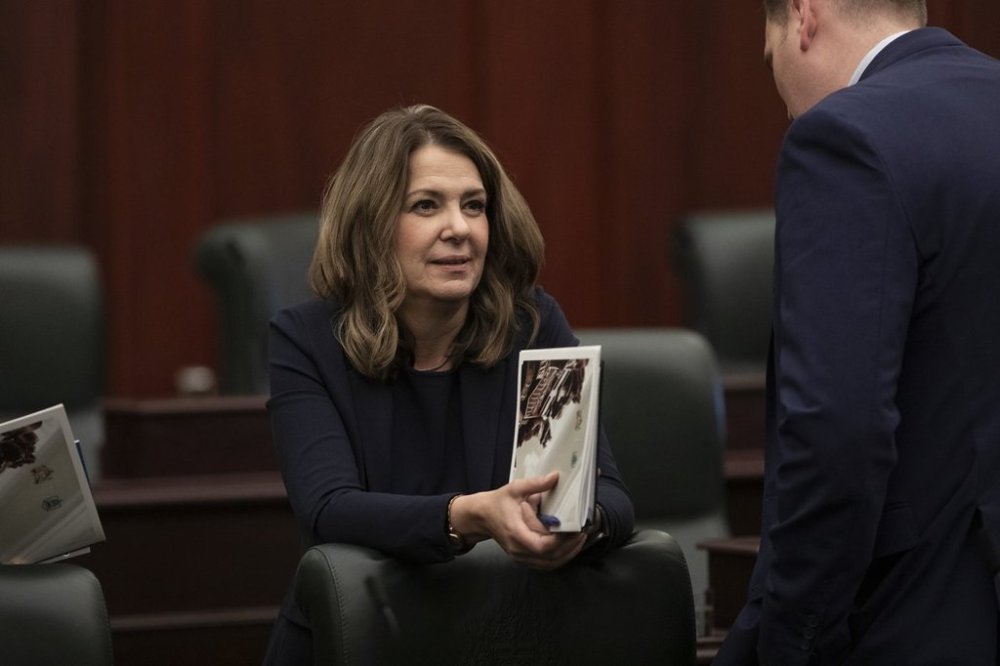Smith defends back-to-work law, says decision is the democratic job of lawmakers
Advertisement
Read this article for free:
or
Already have an account? Log in here »
We need your support!
Local journalism needs your support!
As we navigate through unprecedented times, our journalists are working harder than ever to bring you the latest local updates to keep you safe and informed.
Now, more than ever, we need your support.
Starting at $15.99 plus taxes every four weeks you can access your Brandon Sun online and full access to all content as it appears on our website.
Subscribe Nowor call circulation directly at (204) 727-0527.
Your pledge helps to ensure we provide the news that matters most to your community!
To continue reading, please subscribe:
Add Brandon Sun access to your Free Press subscription for only an additional
$1 for the first 4 weeks*
*Your next subscription payment will increase by $1.00 and you will be charged $20.00 plus GST for four weeks. After four weeks, your payment will increase to $24.00 plus GST every four weeks.
Read unlimited articles for free today:
or
Already have an account? Log in here »
Alberta Premier Danielle Smith is defending her government’s move to quickly pass back-to-work legislation invoking the Charter’s notwithstanding clause, saying democracy is when elected officials make decisions — not the courts.
The province passed the law last week to end a three-week teachers strike and used the clause to shield it from court challenges.
Smith has said her United Conservative Party government was forced to take action considering the growing toll the strike was having on more than 740,000 students.

Smith responded Friday to criticism the government’s action represents an erosion of democracy. She said elected officials were doing their jobs and, if they got it wrong, they’ll “hear about it at the polls.”
“Unelected judges making decisions, without any oversight, and without having to go to the people to get the democratic endorsement of their view — that’s not democracy. When elected officials make decisions, that’s democracy,” Smith said in Calgary.
“That is the reason why we are asking the courts to be a little more constrained. Because there are areas that fall very clearly into the realm of elected officials.”
Opposition NDP justice critic Irfan Sabir said Smith is trying to position herself as being above the law.
“In Canada, courts and the judicial system exist to uphold the rule of law and provide checks on government power, which is essential to the functioning of democracy,” Sabir said.
“The premier’s statement shows either a profound lack of understanding of how the judiciary works in Canada or a wilful disregard for the Constitution of Canada.”
The Alberta Teachers’ Association filed a court challenge this week and is seeking an injunction on the law. It’s arguing the way the clause was invoked was “improper and invalid” and that it violates teachers’ rights to freedom of association and expression.
Union president Jason Schilling told reporters Friday in Edmonton that the union has a right to challenge the law in court, despite what the premier says.
“It’s one of the few ones we have left,” he said.
“I think it’s important within any democracy that we have a check and balance system so that we don’t have governments running amok with ideology, forcing legislation on the people who elected them that didn’t elect them to do that policy in the first place.”
The law was passed in one night and has been condemned as government overreach by labour groups, civil rights advocates, lawyer organizations, Amnesty International and the Anglican Diocese of Edmonton.
It has also reignited debate over how best to balance the rules of the Charter with the responsibility of governments to determine and act on what’s best for its citizens. Smith has argued that, in this case, the government’s responsibility is paramount.
David King, a former Alberta Progressive Conservative education minister, criticized the law in a Friday opinion column published by Postmedia.
King writes that during constitutional talks in the early ’80s, then-premier Peter Lougheed’s cabinet expected use of the notwithstanding clause to take time, allowing for public debate and debate in the legislature.
“It was never meant to be invoked hastily, without the opportunity for public input. It was never meant to be a ‘multi-tool’ that a negligent government could use to solve its problems,” King says.
Alberta’s law also imposed on 51,000 teachers a collective bargaining agreement they previously rejected. It calls for fines of up to $500 per day per person for refusing to follow the law.
Smith said Friday she believes Lougheed would have used the clause.
“He was quoted on record saying that if the courts ever affirmed a right to strike and prevented him from ordering his labour groups back to work, he would immediately convene the legislature to invoke the notwithstanding clause,” she said, referring to the Supreme Court of Canada’s 2015 decision that the right to strike is protected by the Charter.
When Smith announced the legislation, she also committed to addressing some of the long-standing concerns that drove the strike and led to bargaining impasses.
She announced Friday the makeup of a new cabinet committee, which she will co-chair, to address classroom sizes and complexity.
“We hope that this is a show of good faith,” she said.
The committee includes cabinet ministers, school superintendents, a public board chair and a representative from the teachers union. Only cabinet members can vote on decisions.
Schilling said the committee, along with the government’s decision to reinstate class size data collection, is a win for teachers. However, he said, the union will hold the government accountable for results.
“The fact that we see government moving on this and making a commitment tells you that we were able to change that conversation through the strike,” he said.
This report by The Canadian Press was first published Nov. 7, 2025.
